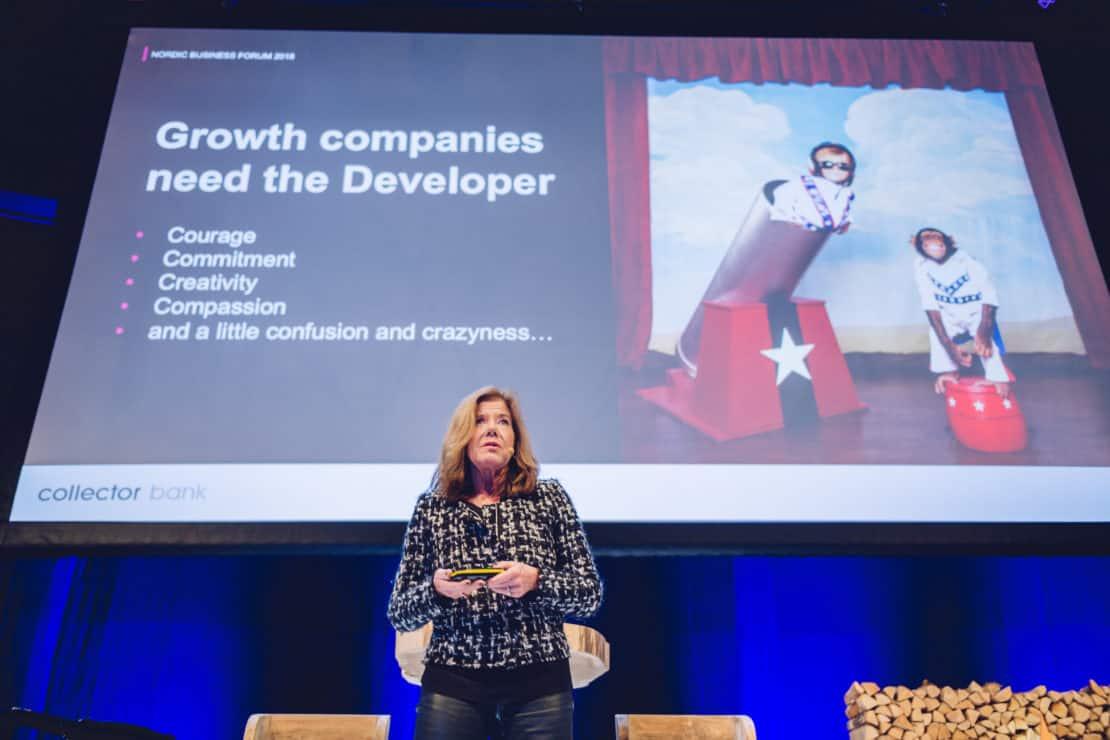24Jan2018
Lena Apler is a force. With three decades of experience in the financial sector, including top positions at SEB, DNB, and Societe Generale, she co-founded the financial services company Collector AB, steering it through its 2015 IPO.
While she has been lauded for her success – she topped Business Week Sweden’s list of top 15 women entrepreneurs in 2015 – she said that her drive to succeed had also led her to become, in her words, “a control freak,” who was constantly checking account balances and her colleagues’ work.
“I became a little bit … questionable,” Apler told attendees at Nordic Business Forum Sweden.
“I think it’s because you start your own company and you are so anxious for this company to succeed, you want everything to be perfect … you can’t let anything go wrong, and that is a mistake.”
It was this awakening that encouraged Apler to change her approach to management, favoring a hands-off approach that welcomed failure as a learning experience, and fostered an environment where her colleagues took more personal initiative, ultimately resulting in positive results.
“You must admit failures from yourself and from your colleagues because otherwise we wouldn’t develop,” said Apler. “You have to let go, release control, let yourself fail, let other people fail, and try to learn from your failures,” she said. “With responsibility and freedom you grow,” Apler added. “And if you show this sort of responsibility and trust to other people, you will also find that you will get fantastic commitment.”
Apler put this experience in the context of artificial intelligence, noting that welcoming failure and showing emotion are key aspects of human leadership. “Leadership is not something you can digitize or use artificial intelligence for,” said Apler. “It is very hard to think about leadership without emotion,” she said. “It’s a people’s game and people lead people.”
Apler encouraged other managers to show their colleagues compassion, and to not be afraid of getting emotional.
“It’s good if you show that you are sometimes confused and crazy, then you let other people be confused and crazy, because we are human beings and human beings have emotions,” said Apler. “You can have very sophisticated models when it comes to AI, but it’s hard to put emotional qualities in that,” she said. “You can’t only predict something, you have to live it.”


